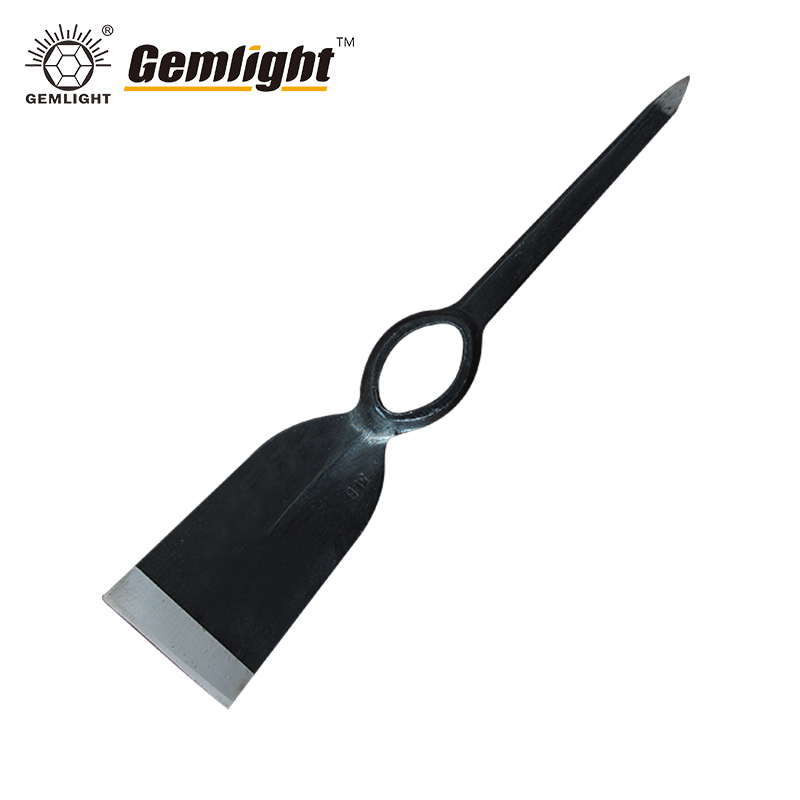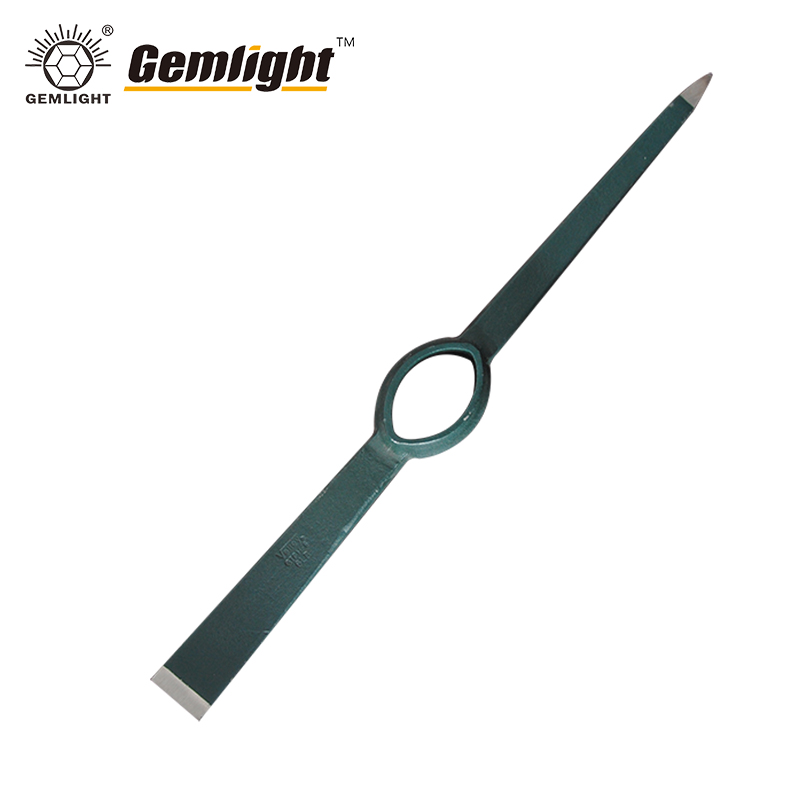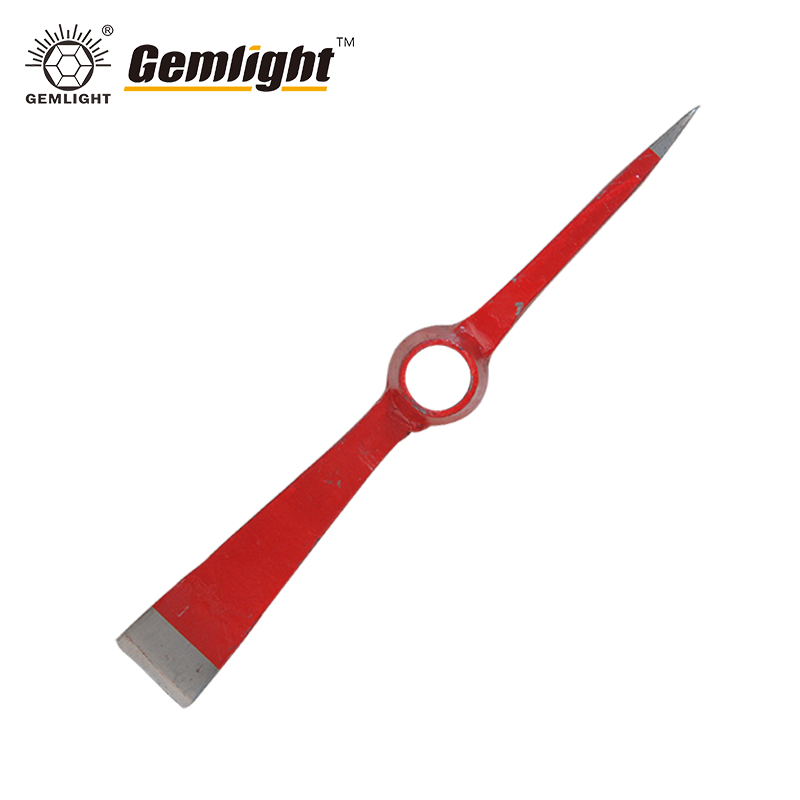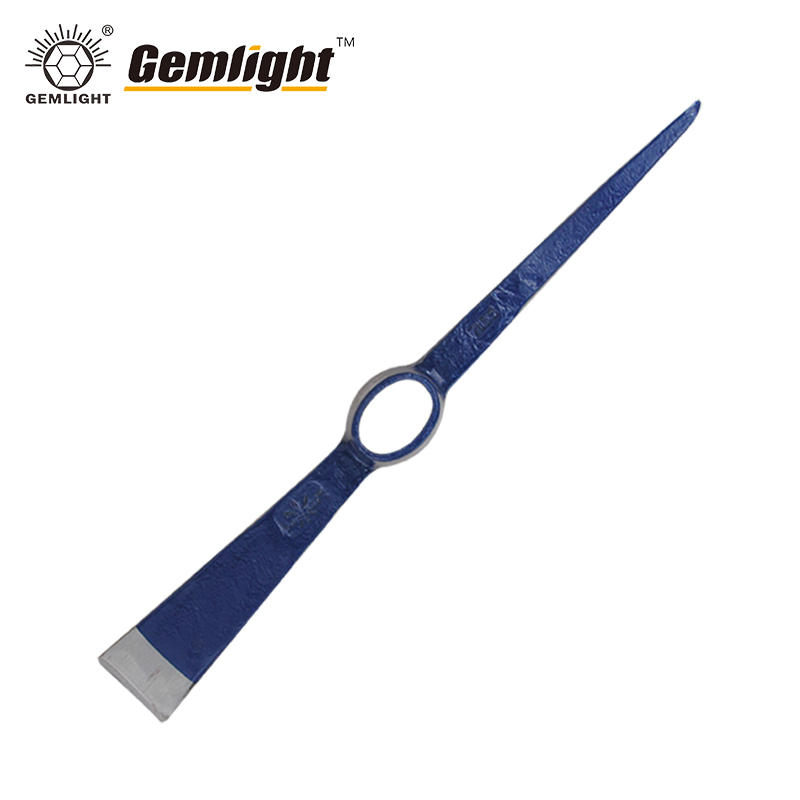News
Choosing the right coal miners pick axe means knowing what matters—blade strength, handle grip, weight balance, and durability. This guide breaks down key features every miner should consider.
A great miners pick axe needs high-carbon steel for durability, a shock-absorbing handle, and proper weight balance. In hard rock mining, I rely on tools that won’t bend, slip, or crack under pressure. The pick should feel solid but not too heavy—enough to break rock without causing wrist fatigue. A strong connection between head and handle is non-negotiable. Over time, a well-built pickaxe delivers more results with less effort, making tough conditions more manageable.

When working with hard rock or dense ore, I choose a miners pickaxe with a pointed tip and reinforced head. A sharp, narrow end helps me penetrate rock seams more efficiently. The tool should also offer a secure grip—especially when my hands are sweaty or wearing gloves. Weight matters too: enough for impact, but light enough for repeated swings. For ore work, I avoid decorative or flimsy tools. Only a purpose-built pickaxe stands up to long hours underground.
3. Top Features to Look for in a Coal Miners Pick Axe
A reliable coal miners pick axe needs more than just a sharp point. I look for heat-treated steel to resist dulling and a handle that won’t crack from moisture or vibration. Anti-slip grips help when working in dusty or wet tunnels. The overall design should feel stable and deliver strong strikes without wobbling. In coal mining, I often work in tight, uneven spaces—so tool control is essential. The best pick axes combine strength, comfort, and long-term endurance.
Even with machines, I still rely on a miners pick axe for detailed work. When I need to break loose a stubborn rock or shape a narrow shaft, machines can’t replace precision. In artisanal or small-scale mining, hand tools remain the primary choice. A good pick axe gives me control, adaptability, and access to areas where equipment won’t fit. That’s why this tool stays relevant, no matter how advanced mining becomes.

Not every pickaxe can handle a mining environment. A miners pickaxe is usually heavier, forged from stronger steel, and shaped for deep strikes. Standard pickaxes—like those used in farming or gardening—aren’t built for repeated impact on rock. I’ve seen cheaper tools snap or wear out fast underground. For real mining, I only trust tools made specifically for the job. The difference isn’t just in design—it’s in survival.
Keeping a miners pick axe sharp and clean extends its life. After each shift, I wipe off dirt and moisture, then check for cracks or wear. When the tip dulls, I use a file or grinder to restore its edge. I also inspect the handle for looseness. A well-maintained tool doesn’t just perform better—it keeps me safer. Maintenance is a habit every serious miner should have.
The handle is the backbone of any miners pickaxe. I prefer hickory for its shock absorption and traditional feel. Fiberglass, on the other hand, offers resistance to rot and water damage. For heavy-duty mining, fiberglass often lasts longer, especially in humid or wet shafts. Whichever material I choose, it must stay solidly attached to the head. A weak handle ruins the best steel.

From my experience and feedback from other miners, the top coal miners pick axe designs include:
Curved-point models for better seam access.
Lightweight heads with strong handles for reduced fatigue.
Anti-slip rubber grips for better control in low visibility.
These features improve precision, reduce strain, and help me work longer without losing efficiency.
Buying a miners pick axe direct from the factory gives me confidence in material quality and consistency. I often ask for customization—like handle length or head weight—based on site conditions. Factory-direct sourcing also lowers costs and improves delivery time. It’s how I ensure I get tools built for real mining, not just hardware shelves.
I’ve seen miners choose the wrong tool—cheap steel, poor grip, or worse, decorative models not meant for real use. A true miners pickaxe needs proven durability and tight construction. Don’t buy based on looks or price alone. Always check head material, handle quality, and weight distribution. The wrong choice wastes money—and risks safety.

| Material | Color | Size (Overall Length) | Specifications |
|---|---|---|---|
| High Carbon Steel Head + Hickory Handle | Black steel head, brown handle | 36 inches (91 cm) | Ideal for hard rock mining, sharp tip, anti-slip grip |
| Alloy Steel Head + Fiberglass Handle | Silver-gray head, black handle | 34 inches (86 cm) | Lightweight, corrosion-resistant, suitable for coal mining and tunneling |
| Forged Steel Head + Composite Handle | Black steel head, gray handle | 38 inches (96.5 cm) | Reinforced impact head, ergonomic handle, excellent grip |
| High Carbon Steel Head + Hickory Handle | Dark gray steel head, brown handle | 32 inches (81 cm) | Traditional design, wear-resistant, suitable for small mines |
| Alloy Steel Head + Fiberglass Handle | Silver steel head, blue handle | 40 inches (102 cm) | Heavy-duty for professional miners, durable and comfortable grip |
About us:
Dingzhou Gemlight Cutting Tools Co., Ltd.
With over 30 years of manufacturing expertise and 20+ years of export experience to Africa, Southeast Asia, and Latin America,
Gemlight is your trusted partner in agricultural and machete tools.
We specialize in producing high-quality machetes, shovels, hoes, pickaxes, and sickles, with a strong focus on durability and performance.
Factory based in Baoding, Hebei, China, we ensure fast delivery, competitive pricing, and customized OEM/ODM solutions.
Trusted by customers in 50+ countries.
Wholesale inquiries welcome.
E-mail: ganzhedao@gmail.com Whatsapp: +86 139 3323 5088

 Sitemap
Sitemap